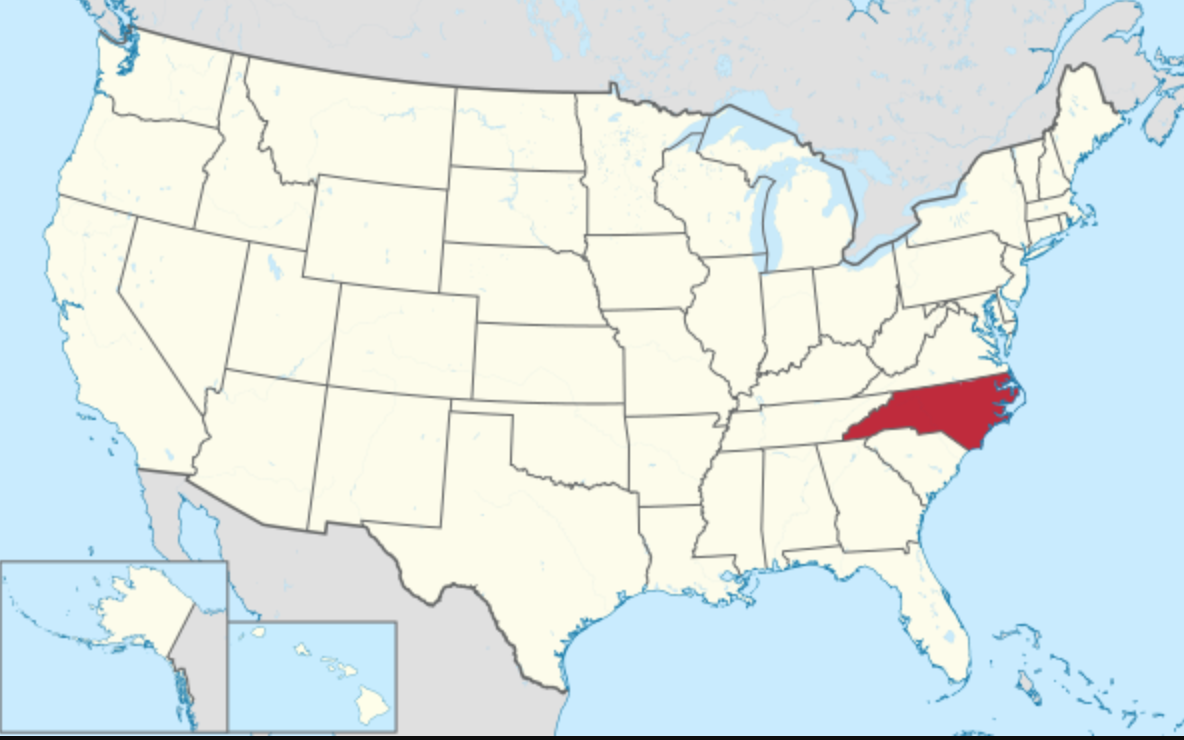By Max Boot
Columnist|
February 6, 2023 at 6:00 a.m. EST
So the Battle of the Balloon is over — and, not surprisingly, America won. On Saturday, one of the most advanced U.S. weapons systems — an F-22 Raptor — shot down one of China’s most primitive surveillance systems: a balloon that had been traversing the United States during the previous week.
Sign up for a weekly roundup of thought-provoking ideas and debates
The whole incident leaves me feeling unsettled and alarmed. Oh, I’m not worried about the spy balloon. The violation of U.S. airspace was unacceptable, but it did not pose any actual threat, and it’s doubtful that it gathered any intelligence that Chinese spy satellites cannot. What concerns me is the hysterical overreaction on the part of so many Americans to the balloon’s progress.
Former president Donald Trump claimed that President Biden now “has surrendered American airspace to Communist China,” even though the Pentagon reports that Chinese balloons had crossed into U.S. airspace at least three times during Trump’s own presidency. “The president failed on this one,” said New Hampshire Gov. Chris Sununu (R). “Tough guy, Joe. Too little, too late,” huffed talk-show host Mark Levin. “Bought and paid for by the Communist Chinese government.”
http://www.washingtonpost.com/opini...?itid=mc_magnet-cartoons_inline_collection_18
http://www.washingtonpost.com/opini...?itid=mc_magnet-cartoons_inline_collection_19
What is it that Biden was supposed to have done? Should he have personally climbed into an F-22 cockpit and led the attack on the balloon like the president played by Bill Pullman in “Independence Day”? Should he have launched a nuclear strike against China in retaliation? Republicans didn’t have any clear alternatives, but that did not stop their hyperventilating. Sen. Marco Rubio (R-Fla.) argued that China sent the balloon to show “that the United States is a once-great superpower that’s hollowed out, it’s in decline.”
Follow Max Boot's opinionsFollow
The reaction was so overwrought that Biden felt compelled to postpone Secretary of State Antony Blinken’s trip to China. That’s too bad, because the frenzy over the spy balloon underlines the need to establish better lines of communications with Beijing to prevent U.S.-China tensions from spiraling out of control.
The balloon-mania, after all, comes only a few days after Air Force Gen. Michael A. Minihan, head of Air Mobility Command, sent out a memo to his subordinates predicting war with China within two years: “I hope I am wrong,” he wrote. “My gut tells me we will fight in 2025.” Sounding like one of the unhinged generals in Stanley Kubrick’s Cold War satire “Dr. Strangelove,” he advised his airmen — who operate and maintain cargo aircraft — to “fire a clip into a 7-meter target” and “aim for the head.”
David Ignatius: The inside story of how the U.S. shot down the Chinese balloon
Minihan and everyone else who thinks that war is imminent (e.g., House Foreign Affairs Committee chairman Michael McCaul [R-Tex.]) needs to get a grip. CIA Director William J. Burns said last week that Chinese leader Xi Jinping had ordered his military to be ready to invade Taiwan by 2027, but “that does not mean that he’s decided to conduct an invasion in 2027, or any other year.” Indeed, Burns noted, Russia’s bungled invasion of Ukraine might give Xi pause before launching a risky attack of his own.
War with China can and should be avoided — but we make it more likely by assuming it’s inevitable or by giving vent to exaggerated fears about Chinese power. The kind of anti-Chinese paranoia we are now seeing reminds me of the early days of the Cold War. Back then, there was also a sense that the United States was losing a global struggle with the Communists and that World War III might be nigh. That was a dangerous, destructive mind-set that led to anti-Red witch hunts at home and to ill-fated, costly military interventions such as the one in Vietnam. It almost led, during the Cuban missile crisis, to nuclear Armageddon.
In reality, the Soviet Union was never as strong or as reckless as so many imagined — and neither is Communist China. Xi presides over a country with an aging population, a slowing economy and few friends. That helps to explain why he has lately been trying to mend ties with the United States and Europe.
Sebastian Mallaby: China’s alleged spy balloon is the perfect symbol of its clumsiness
The United States, while it has a smaller population than China, is actually stronger by most measures of hard or soft power. Indeed, Australia’s Lowy Institute, in its annual survey of the balance of power in Asia, finds the United States still in first place ahead of China. The index notes that the United States leads in “future resources, resilience, defence networks, cultural influence, and military capability.” Last week saw another reminder of one of our key advantages — we have a lot more allies than China — when the Philippines agreed to extend U.S. access to four more military bases.
None of those advantages are negated by China’s ability to send a balloon wafting over the United States. Indeed, it’s not clear that China accomplished anything other than alarming Americans about the threat it poses. A healthy concern about China’s growing power is warranted, but paranoia and alarmism are not. The United States is still the No. 1 power in the world, and we can remain that way as long as we do not blunder into a catastrophic and unnecessary war with a No. 2 power whose rise might have already peaked.
Columnist|
February 6, 2023 at 6:00 a.m. EST
So the Battle of the Balloon is over — and, not surprisingly, America won. On Saturday, one of the most advanced U.S. weapons systems — an F-22 Raptor — shot down one of China’s most primitive surveillance systems: a balloon that had been traversing the United States during the previous week.
Sign up for a weekly roundup of thought-provoking ideas and debates
The whole incident leaves me feeling unsettled and alarmed. Oh, I’m not worried about the spy balloon. The violation of U.S. airspace was unacceptable, but it did not pose any actual threat, and it’s doubtful that it gathered any intelligence that Chinese spy satellites cannot. What concerns me is the hysterical overreaction on the part of so many Americans to the balloon’s progress.
Former president Donald Trump claimed that President Biden now “has surrendered American airspace to Communist China,” even though the Pentagon reports that Chinese balloons had crossed into U.S. airspace at least three times during Trump’s own presidency. “The president failed on this one,” said New Hampshire Gov. Chris Sununu (R). “Tough guy, Joe. Too little, too late,” huffed talk-show host Mark Levin. “Bought and paid for by the Communist Chinese government.”
http://www.washingtonpost.com/opini...?itid=mc_magnet-cartoons_inline_collection_18
http://www.washingtonpost.com/opini...?itid=mc_magnet-cartoons_inline_collection_19
What is it that Biden was supposed to have done? Should he have personally climbed into an F-22 cockpit and led the attack on the balloon like the president played by Bill Pullman in “Independence Day”? Should he have launched a nuclear strike against China in retaliation? Republicans didn’t have any clear alternatives, but that did not stop their hyperventilating. Sen. Marco Rubio (R-Fla.) argued that China sent the balloon to show “that the United States is a once-great superpower that’s hollowed out, it’s in decline.”
Follow Max Boot's opinionsFollow
The reaction was so overwrought that Biden felt compelled to postpone Secretary of State Antony Blinken’s trip to China. That’s too bad, because the frenzy over the spy balloon underlines the need to establish better lines of communications with Beijing to prevent U.S.-China tensions from spiraling out of control.
The balloon-mania, after all, comes only a few days after Air Force Gen. Michael A. Minihan, head of Air Mobility Command, sent out a memo to his subordinates predicting war with China within two years: “I hope I am wrong,” he wrote. “My gut tells me we will fight in 2025.” Sounding like one of the unhinged generals in Stanley Kubrick’s Cold War satire “Dr. Strangelove,” he advised his airmen — who operate and maintain cargo aircraft — to “fire a clip into a 7-meter target” and “aim for the head.”
David Ignatius: The inside story of how the U.S. shot down the Chinese balloon
Minihan and everyone else who thinks that war is imminent (e.g., House Foreign Affairs Committee chairman Michael McCaul [R-Tex.]) needs to get a grip. CIA Director William J. Burns said last week that Chinese leader Xi Jinping had ordered his military to be ready to invade Taiwan by 2027, but “that does not mean that he’s decided to conduct an invasion in 2027, or any other year.” Indeed, Burns noted, Russia’s bungled invasion of Ukraine might give Xi pause before launching a risky attack of his own.
War with China can and should be avoided — but we make it more likely by assuming it’s inevitable or by giving vent to exaggerated fears about Chinese power. The kind of anti-Chinese paranoia we are now seeing reminds me of the early days of the Cold War. Back then, there was also a sense that the United States was losing a global struggle with the Communists and that World War III might be nigh. That was a dangerous, destructive mind-set that led to anti-Red witch hunts at home and to ill-fated, costly military interventions such as the one in Vietnam. It almost led, during the Cuban missile crisis, to nuclear Armageddon.
In reality, the Soviet Union was never as strong or as reckless as so many imagined — and neither is Communist China. Xi presides over a country with an aging population, a slowing economy and few friends. That helps to explain why he has lately been trying to mend ties with the United States and Europe.
Sebastian Mallaby: China’s alleged spy balloon is the perfect symbol of its clumsiness
The United States, while it has a smaller population than China, is actually stronger by most measures of hard or soft power. Indeed, Australia’s Lowy Institute, in its annual survey of the balance of power in Asia, finds the United States still in first place ahead of China. The index notes that the United States leads in “future resources, resilience, defence networks, cultural influence, and military capability.” Last week saw another reminder of one of our key advantages — we have a lot more allies than China — when the Philippines agreed to extend U.S. access to four more military bases.
None of those advantages are negated by China’s ability to send a balloon wafting over the United States. Indeed, it’s not clear that China accomplished anything other than alarming Americans about the threat it poses. A healthy concern about China’s growing power is warranted, but paranoia and alarmism are not. The United States is still the No. 1 power in the world, and we can remain that way as long as we do not blunder into a catastrophic and unnecessary war with a No. 2 power whose rise might have already peaked.



